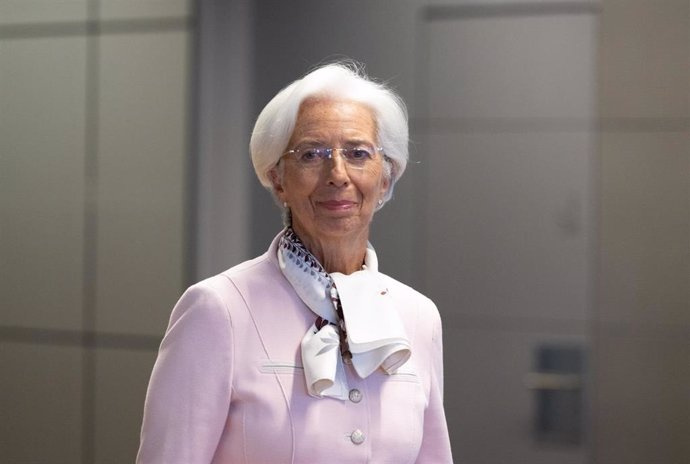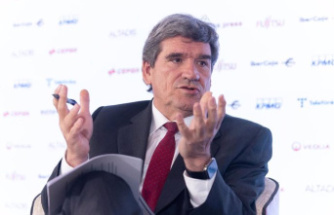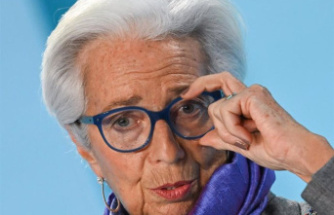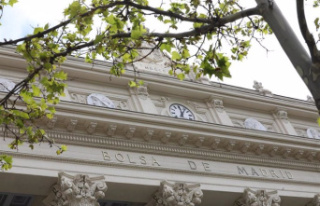The Frenchwoman also believes that China will reorient its exports towards non-aligned countries due to tensions with the US and the EU.
MADRID, 17 Abr. (EUROPA PRESS) -
The president of the European Central Bank, Christine Lagarde, assured this Wednesday at an event organized by the 'Council on Foreign Relations' that the eurozone exhibits "clear signs of recovery" after a prolonged period in which it has been flirting with stagnation.
"We have not had a recession, but it has been [a recovery] very, very slow and meager," he stated, but it has been accompanied by "exceptional" employment data, as demonstrated by the fact that the employment rate Unemployment is at historic lows.
Lagarde has explained that her forecasts contemplate an acceleration of growth to around 1.5% for 2025 and 2026 compared to 0.5% this year. However, he has contextualized this dynamic within recent macroeconomic perspectives that have been "mediocre" for Europe compared to those of the United States.
"2022 was a very good year for Europe and it was not for the United States. [...] 2023 was very good for the United States and very mediocre for Europe," he maintained.
Lagarde has confirmed that the current differential between the size of the European and American economies in favor of the latter responds to several factors, among which are the energy crisis, which hit Europe hardest, but also due to the hangover derived from the financial crisis of 2008 and the sovereign debt crisis or the incomplete nature of the monetary union.
To this we should add the gap between American productivity, which has advanced by 6% since 2019, and European productivity, which has only increased by 0.6%. This explains why the accumulated GDP growth in Europe since the pandemic has been 3%, half that of the US.
The president of the ECB has recognized the relevance of China in the global economic situation, from the role of raw materials or financial stability to trade flows.
In this regard, Lagarde has echoed the Asian giant's lower growth expectations that are exacerbated by the rapid aging of its demographic pyramid and the fall in the working-age population.
As a consequence, the French lawyer has pointed out that China could "transform its [industrial] machinery" and increase its exports to non-aligned countries, responsible for 50% of global trade, to get rid of its "overcapacity" in manufacturing terms given the hostility and growing suspicion from Washington and Brussels, respectively.
Even so, Lagarde has not commented on whether Europe will impose protectionist measures on Chinese exports, but she has shown her support for the "transatlantic dialogue" with the United States, as in the case of rare materials or microchips, and has crossed out the path of a "subsidy war" as undesirable.
"I really believe that trade on equal terms is essential for the development of well-being and favoring the improvement of relations between countries, people and economic agents. Moving towards protectionism has been a terrible evolution during our history and has caused more wars than we can even imagine today," he said.
Regarding monetary policy, Lagarde has ruled out revising the price stability objective defined at 2% since "the rules cannot be changed after starting to play, [...] and we are still in the middle of the game."
Furthermore, although he has acknowledged that the ECB is not in charge of currency exchange rates, they will be monitored "very closely" given that these movements can have an impact on the cost of living through a kind of "imported inflation." .
Lagarde has also indicated that fiscal deficits during the pandemic helped sustain aggregate demand and prevent the collapse of the economy just at a time when fiscal and monetary policy went hand in hand, while now discrepancies may emerge between the tightening monetary policy of the ECB and lax fiscal policies that 'overheat' the economy.
For her part, the former French Minister of Economy has defended that the ECB analyze the impact of climate change on financial and macroeconomic conditions, but that she will not incorporate it into the mandate of the issuing institute since she understands that the main objective is the price stability that allows the correct analysis of existing risks.
In this sense, Lagarde has referred, for example, to how droughts can impede navigation on the Rhine River, which would make the transportation of goods more expensive, or to carbon taxes, which are inflationary in the short term due to the increase in costs, but disinflationary in the medium term by limiting the future impact of climate change on the productive fabric.
The private sector must also play a "massive" role in tackling the climate crisis and undertaking the ecological transition, since it is estimated that it will require between 500,000 and 600,000 million euros annually until 2030, and about 800,000 millions in the later ones.
The leader of the ECB has championed a regulation that controls the use of artificial intelligence (AI) due to its potential to transform society. "At the moment, I'm not risk-averse, but I am aware that it can probably create as many benefits as risks. And we better be aware of them," she said.













